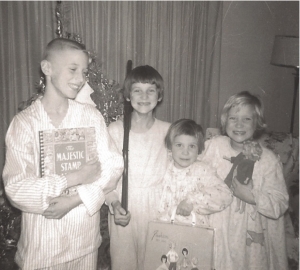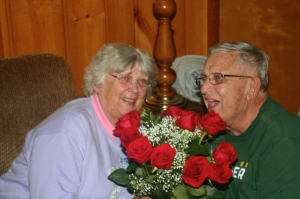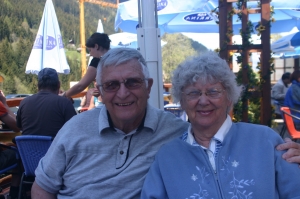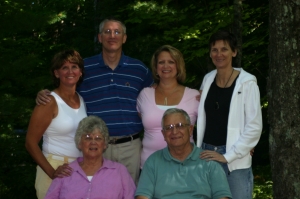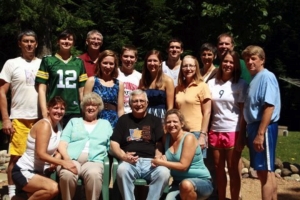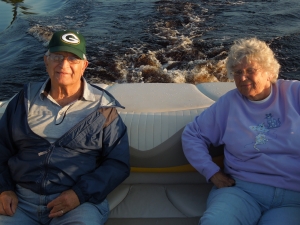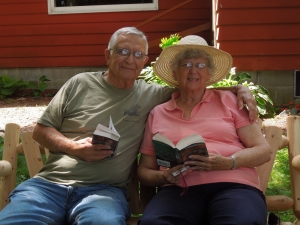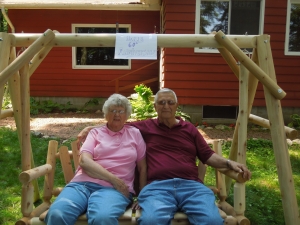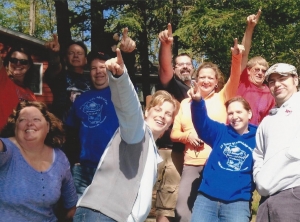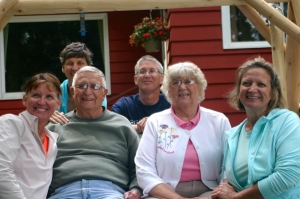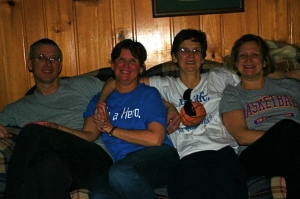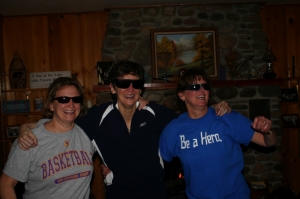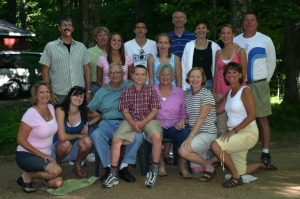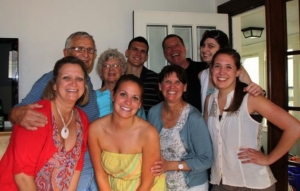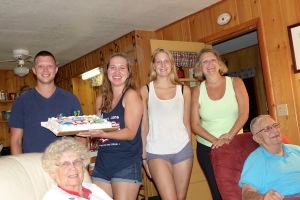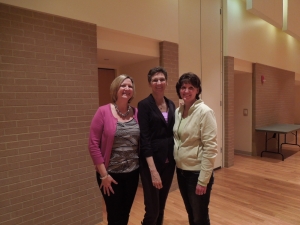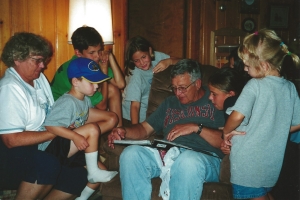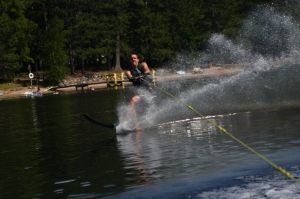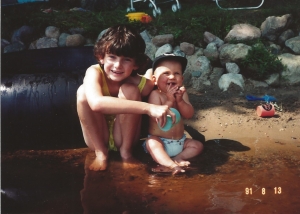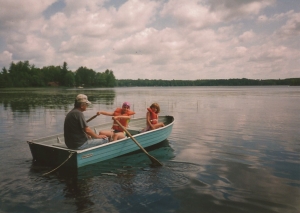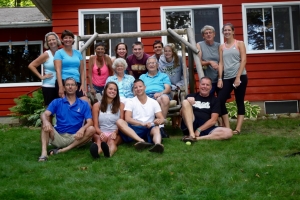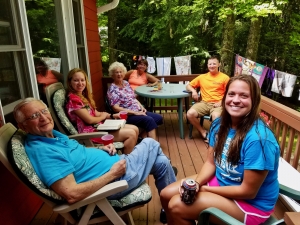 On August 29th sixty-five years ago, my dad married his college sweetheart in Chicago, Illinois and from that day forth Jim and Lenore vowed to commit their lives to one another. For six and a half decades they walked the walk and exemplified what makes a good marriage.
On August 29th sixty-five years ago, my dad married his college sweetheart in Chicago, Illinois and from that day forth Jim and Lenore vowed to commit their lives to one another. For six and a half decades they walked the walk and exemplified what makes a good marriage.
Their love story started at Northern Illinois University, when my dad saw my mom strolling across campus and fell head over heels. Though Lenore was more vigilant, her girl friends swooned and told her « Jim is the catch of the campus. » He wooed her with poems and sketches showing a tender side to this tough, All-American athlete.
After they married, family became the focus of their lives.
Despite busy careers as teachers, they found time to foster each of their 4 children’s interests. They never missed choral performances, basketball games and track meets.
Even more remarkably, they had love left over to share with other people’s children – the countless number of neighborhood kids, school friends and teammates that tramped through the homestead on E. 19th street.
Though on occasion they squabbled like any married couple, they rarely fought.
However Lenore refereed many arguments between Jim and his feisty eldest daughter who inherited his intensity and temperament.
They shared a love of travel and enjoyed many trips to visit their children and grandchildren in Germany, France, Switzerland and Australia. On visits abroad, they also reconnected with Norwegian relatives living above the Arctic Circle. In retirement, as snow bunnies, they enjoyed several years wintering in Arizona. 
They both have a creative streak – my mom an exceptional seamstress; dad a gifted athlete and skilled artist of landscape paintings. They passed onto their children a love of music, books, and sports.
But their real art was in education, whether they were showing campers how to swim, kindergarteners how to write their names, or high school athletes how to shoot a perfect jump shot.
After a rewarding career teaching Sterling’s youth, they remained a part of the community by raising money in church bazaars and quilt auctions, and by volunteering at food pantries.
Throughout their union, they supported each others passions. Lenore shivered on hard bleachers through countless cold football seasons cheering for Jim, first as an athlete and then as a coach.
Jim couldn’t sew a stitch to save his life, but he patiently drove Lenore across the Midwest to visit quilt shops. While she filled her shopping basket with new sewing projects, he sat in the car reading detective novels.
The best testimony to their love is its resiliency. Instead of tearing them apart, crisis only strengthened their bond. Dad helped mom endure the loss of her own father at age 18. They comforted one another when their daughter fought to recover from a life threatening car accident in a foreign country 4,000 miles away. They supported each other as they cared for aging parents, and later, as they faced their own health challenges.
They rejoiced in celebrations – weddings, graduations, and grandchildren’s births.
Through their actions and deeds, they passed on to their children respect for others and the value of integrity.
They sent countless letters, made umpteen phone calls, drove endless miles, and flew across time zones to stay connected. Though family extended across 3 continents and 4 different states lines, they remained a part of their children’s and grandchildren’s lives. 
During sixty-five Summit Lake summers at Camp Ney-a-ti and the little red cabin in Wisconsin, they carved time out of busy schedules to slow down and appreciate nature’s splendor, renew vows for one other and nurture their love of family.
By their example, they gave everyone who knew them a blue print of how to create a marriage filled of kindness, compromise, tolerance, generosity and trust.
By opening their home and hearts over the years, their union taught us that true love is gift. The more you give it away, the greater your own blessings.
I should know. I had the good fortune to be born an Olson-McKinzie.
Happy 65th Anniversary Mom and Dad

